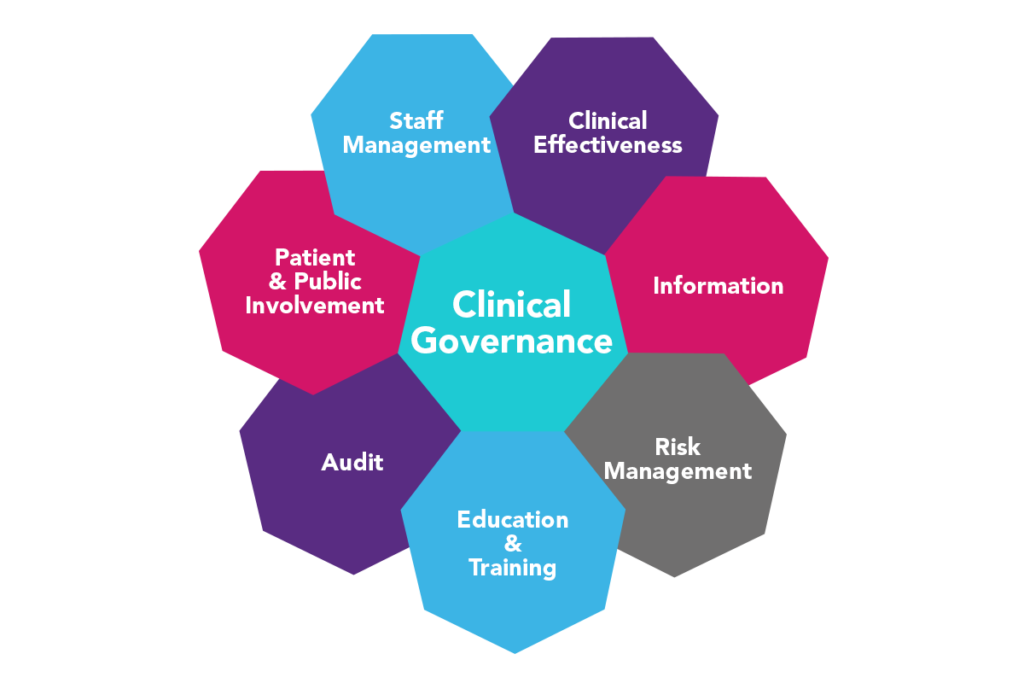Quality of care is a major topic in health and social care, and clinical governance ensures this quality is maintained to a high standard.
What is clinical governance?
Scally and Donaldson wrote ‘Clinical governance and the drive for quality improvement in the new NHS in England’ in 1998, covering a definition for clinical governance:
“A system through which NHS organisations are accountable for continuously improving the quality of their services and safeguarding high standards of care by creating an environment in which excellence in clinical care will flourish.”
It’s essentially an overarching framework covering all activities that help sustain and improve high standards of patient care. Health care organisations must be able to evidence that standards are maintained when putting any structures, systems or processes in place.
Let us help you improve the quality of care you provide

1. Clinical Effectiveness
Any treatment used must provide the best outcome for the patient:
- Using evidence based approaches when deciding treatment
- Sticking to guidelines
- Using experience to improve
- Researching to enhance future care
2. Risk Management
Minimise risks to the patients in care. There are different ways to manage risk and ensure incidents don’t occur:
- Identifying problem areas in treatments
- Improvement through learning from previous issues
- Reduce risks by implementing risk systems
- Thorough risk assessments and reporting of incidents and near misses
3. Patient & Public Involvement
Communicate with patients and the public to gain insight on the quality of care and any possible problems:
- Patient questionnaires
- Patient forums
- Representatives for patients on practice and hospital boards
4. Audit
Audits are carried out to monitor the quality of clinical care being carried out. They measure against set guidelines and any deviances are examined and improved upon. After some time, audits are repeated to ensure that actions taken to improve have worked, and organisations are quality assured.
5. Staff Management
This ensures those employed are suitable to carry out the work. If anyone is under performing, they can be highlighted and helped to improve. Professional development of staff should be encouraged, and this can be helped through motivation and a pleasant working environment.
6. Education & Training
It’s important staff have continual training to ensure they are up to date in their knowledge. This allows them to provide the best care possible at all times. Staff can:
- Achieve further education through degrees or diplomas
- Attend events, lectures, webinars, and courses
7. Information
A patient’s information should always be up to date and correct on any systems used. It should also be confidential through correct storage and management of data.
Why are the 7 pillars of clinical governance important?
Clinical governance ensures a continuous drive to improve standards of health and social care organisations. A cycle of controlling, monitoring and improving through the 7 pillars ensures a higher quality of care for patients.
